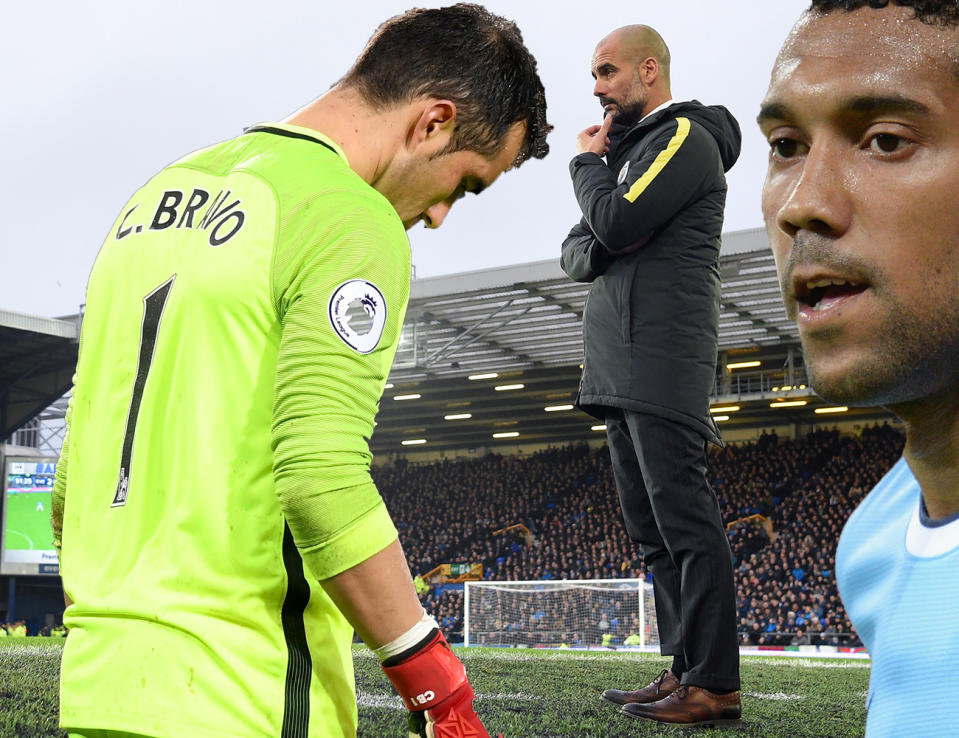Guardiola looks to be sixth best after breaking a City side that did not need mending

Pep Guardiola came to England in search of new experiences. He has certainly found them. Out of the title race in the middle of January, facing a battle to qualify for the Champions League, the Manchester City manager finds himself in uncharted territory.
Touted as the greatest manager in history, having overseen the biggest spending spree by a British club in a transfer window, he faces the prospect of coming sixth out of six among England’s elite teams. It is a chastening fall from grace for a man who can excel at public displays of humility, but whose actions sometimes show his obstinacy.
Guardiola presented himself as the most malleable of managers at his July unveiling, arguing there were only two or three things he would not compromise. “I have to adapt to the qualities of my players,” he said. Perhaps he overestimated the qualities of those players or his own ability to coach them. Certainly he underestimated the division.
Guardiola has been snippy when asked about the problems of managing in the Premier League. Some of his doubters were jingoistic, and were shown that, contrary to the cliché, the Catalan’s team could score four goals away at Stoke and four more against a Tony Pulis team. Yet many offered legitimate questions, based on the idiosyncrasies of a unique league. Guardiola has struggled to supply eloquent enough answers.
The differences of an environment where there are six teams of roughly similar ability level, rather than one or two who rank far above the rest, are being shown. The lesser lights can lack the technical excellence of their Spanish counterparts, but their relentlessness and resilience seem to have taken Guardiola aback.
Bravo is a goalkeeping downgrade
So does their directness. Opinions vary if Guardiola was being sarcastic when he attributed December’s victory over Arsenal to working on second balls, but his side often appear unsuited to a diet of set-pieces, long balls and swift counter-attacks. A blend of old-fashioned British football and newly-adopted pressing tactics has rendered his passing principles problematic.
Consider the goal Nathan Redmond scored for Southampton, a consequence of John Stones trying to pass at the back. Look at Romelu Lukaku’s opener for Everton on Sunday, an illustration that Gael Clichy, who gave the ball away, is simply not good enough to play Guardiola-style football.

A capacity to concede on the counter-attack, home and away against Everton, at the Etihad Stadium against Chelsea and, in particular, in the 4-2 thrashing at Leicester suggested a team built to have possession are not equipped to cope when it is lost, players are committed upfield and a creaking defence is exposed. It points to a failure of personnel, a lack of organisation and confused priorities.
Coaching and signing appear concentrated on what happens when City have the ball. Purism was pursued, pragmatism ignored. It takes a certain type of idealist to buy four wingers and keep the four 30-something, declining full-backs. Even the goalkeeping purchase of Claudio Bravo was based on his supposed skills in possession.
Guardiola took something that was not broken and wrecked it
He was bought out of ideology, not necessity. His arrival highlights one of the pillars of Guardiola’s philosophy that, albeit obliquely, he invoked six months ago.
Yet whereas Manuel Neuer and Victor Valdes were likelier to keep the ball than the exiled Joe Hart, Bravo is a goalkeeping downgrade.
His comparatively short stature always threatened to be an issue in England, and a lack of conviction against the crossed ball contributed to goals Manchester United’s Zlatan Ibrahimovic and Burnley’s Ben Mee scored against United.
Yet the graver concern is that a supposed shot-stopper has scarcely saved a shot. Bravo was beaten by all four efforts on target Everton mustered last week. He has let in 14 of the last 22 he has faced.
Too few opponents need to find the corner of the net. City have been trying to win the league with statistically the 18th best of the 20 regular keepers.
Bravo represents the single biggest reason why ambitions will not be realised, but the most damning element of City’s goalkeeping crisis is that it is needless. Guardiola took something that was not broken and wrecked it. A title challenge has been destroyed by dogma and doctrine.
There is a case for saying it only lasted as long as it did because of rare compromises, playing a less distinct, less purist brand of football to get wins at Crystal Palace and Burnley that Guardiola said he did not particularly enjoy. Yet the truth is he has not adapted enough: to England, to City, to his flawed squad, to the more physical tests.
And methods that worked magnificently in Spain and Germany, with superior players, in games when Barcelona and Bayern Munich were invariably favourites, have backfired at times with City. Guardiola wanted a taste of something different. Yet without amending his blueprint to suit the circumstances, he has got the sort of change he didn’t want.


